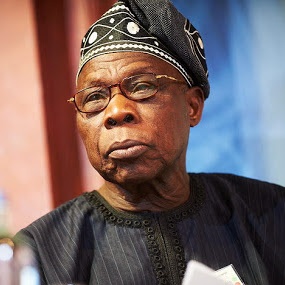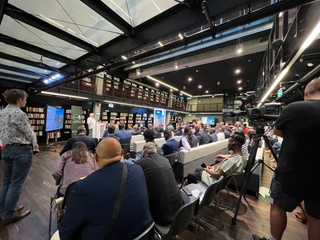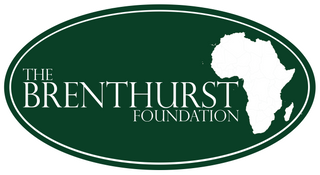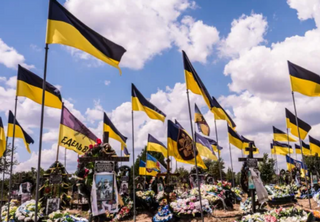News
Gdansk Declaration: African Opposition Unites to Fight Authoritarian Regimes
While Baltic States and countries of Central and Eastern Europe undertook wide-ranging reforms to bring about competitive, modern economies that generated the growth needed to improve the prosperity of their people, African countries have struggled to make progress, write Olusegun Obasanjo, Lech Walesa and Yulia Tymoshenko.

Former President of Nigeria; Chairman and Advisory Board Member Emeritus, The Brenthurst Foundation

Former President of Poland

Former Prime Minister of Ukraine

In June this year, leaders from Africa, Latin America and Central Europe gathered in the city of Gdansk, Poland to discuss how to achieve greater democracy and economic progress as the democratic world battles the rise of authoritarianism, and as Africa continues to suffer from slow growth and an increase in poverty.
Perhaps because of the fig-leaf offered by the ‘Africa Rising’ narrative, few realise that this has, in fact, been a terrible decade for prosperity in sub-Saharan Africa. It is a shocking truth that Africans are, on aggregate, poorer than they were ten years ago.
The high-point achieved in 2014 of $1936 GDP per capita has shrunk to $1690 over the last eight years.
This decline in prosperity has come as sub-Saharan Africa has entered a ‘democratic decline’. According to the Council on Foreign Relations, “More Africans live under fully or partially authoritarian states today than at most points in the last two decades.”
The fact is that there cannot be economic progress without greater democracy. The openness, accountability and transparency that accompany democracy are essential to ridding the continent of the plague of elite extraction where a small portion of the population gets rich, usually out of resource extraction, at the expense of most of the people.
This was the essence of the discussion that took place at the Gdansk meeting which took place at the historic shipyard where the tide was turned against the dictatorships that ruled Eastern Europe until the late 1980s.
Rolling back authoritarianism
The conference was held under the heading ‘Rolling Back Authoritarianism’ as Africans sought to understand the lessons offered by countries such as Poland, Latvia and Lithuania. Like many African countries, these nations freed themselves from the shackles of authoritarian rule and inherited broken states with inefficient, failing public enterprises.
But, whereas the Baltic States and countries of Central and Eastern Europe undertook wide-ranging reforms to bring about competitive, modern economies that generated the growth needed to improve the prosperity of their people, African countries have struggled to make progress.
The reasons for this lie in the fraught political economies of African countries, where states – frequently under the guise of ‘revolutionary’ ideologies – have become the redoubts of despots that are primarily focused on staying in power and enriching themselves and their cronies.
This is, of course, a generalisation. There are many countries such as Zambia, Ghana, Malawi, Kenya and Namibia where substantial progress towards democracy has been made.
But there are others such as Uganda, Angola, Mozambique, Tanzania and Zimbabwe where ‘liberation movements’ have hung onto power, stifling growth and development while a small elite has thrived at the expense of the people.
Yet others, such as South Africa, have promised democracy but have become ‘captured’ states where ruling parties associate themselves with autocrats in Russia and distance themselves from other democracies, which they openly despise. Unsurprisingly, elite enrichment and high unemployment are features of these economies.
Participants at the conference such as Uganda’s Robert Kyagulanyi Ssentamu, known by his stage name Bobi Wine, and Adalberto Costa Júnior of Angola’s opposition, have clearly won elections only to see them stolen through rigged counting by ruling parties unwilling to cede power.
Many of the leaders present carry out their activities in spite of ongoing state harassment and intimidation. Some such as Tundu Lissu of Tanzania had survived assassination attempts; several others including Venezuela's Leopoldo Lopez and former Kenyan prime minister Raila Odinga have endured years in detention; and some, such as former Botswana president Ian Khama, are now in exile.
How do we bring accountability to nations that don’t have the checks and balances
The leaders at the ‘Rolling Back Authoritarianism’ conference adopted a 21-point ‘Gdansk Declaration’ aimed at improving co-operation among opposition parties and improving democratic competitiveness. The declaration has been signed by 58 delegates including Nobel laureate and former Polish President, Lech Walesa and fellow Nobel laureates, Oleksandra Matviichuk, Head of the Centre for Civil Liberties in Ukraine, and former president Ellen Johnson-Sirleaf of Liberia.
The declaration addresses the key question: How we should bring accountability to nations that don’t have the checks and balances needed to make democracy work.
We are in the era of intellect, information and globalisation. The old order is collapsing, but the new order has not yet arisen.
Those wanting to build a new society need to work together and win one another’s trust.
This struggle between the old and the new is epitomised by the Russian invasion of Ukraine. It is a struggle between those who are seeking to create a new imperial order where might is right and those who believe in democracy and the application of global rules around sovereignty.

Delegates also heard how it would be impossible to get the economics right until the politics was right. This should start with intolerance of any aggression between one country and another.
The declaration stated: “We recognise that democracy in Africa is already under growing threat, including dramatic reversals this century in the Sahel and in North Africa. While these struggles may be characterised as popular, authoritarianism is today less about promoting ideology than defending elite privilege and power. Some African countries have never enjoyed a peaceful transfer of power at the polls. The weakness of institutions makes African countries particularly vulnerable to external undermining of democracy and to the risks of state capture.
Since nine out of ten Africans live under versions of authoritarianism, the struggle for democracy must involve all those outside government, in civil society including the media, academia, trade unions, churches and business. It may also involve those in government, given differences between ‘enlightened’ and ‘repressive’ authoritarians.
The declaration includes commitment to 21 points – mimicking the 21 points of the declaration made by the Gdansk dockworkers during their uprising against Soviet authoritarianism more than three decades earlier.
It goes on to say:
These struggles are not nationally determined and bound. Defending democracy requires common purpose – of solidarity – among democrats inside and outside all countries. Just as authoritarians have created their own financial, military and media networks that support each other, democrats have to do the same.
These clauses included an appeal to “support democratic struggles materially and morally, making the fight for democracy easier and safer” and to “commit to shared values and principles, before and after taking power, including transparency, accountability, and key policy precepts such as the protection of private property, and reform of the education and health systems. Act to continuously to uphold freedom of speech and association and basic human rights.”
The declaration also called for the creation of “a region-wide Alliance of Democrats, formed around shared values, which meets frequently to build trust, develop joint strategies, monitor electoral standards and practices and share experiences. “We recognise that freedom is not free. Democrats everywhere need to be united, and work together to reduce the costs and risks of this formidable if achievable task. We must provide moral support to all comrades in struggle, from Ukraine to Uganda.”
Events in Ukraine have elevated the importance of the struggle for democracy. As the conference heard, if Russia was to prevail, authoritarians would receive a boost, including in Africa. The struggle for democracy, we have been reminded, is universal. There is much to be done in Europe and Latin America as in Africa.
- By former Nigerian President Olusegun Obasanjo, former Polish resident Lech Walesa and former Ukrainian Prime Minister Yulia Tymoshenko .
This article originally appeared on News24

